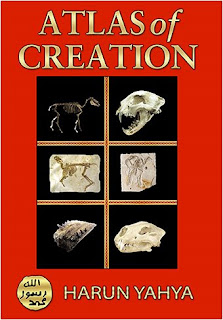 One of the biggest criticisms of young-earth creationist research is the fact that its research isn’t generally peer-reviewed. So when this week’s Answers Weekly email announced that Answers in Genesis’ year-old Answers Research Journal has, since its inception, “grown from a humble start with three peer-reviewed papers to a popular destination for serious creation researchers and a fast-growing repository of investigations from those on the new frontiers of science,” I was intrigued.
One of the biggest criticisms of young-earth creationist research is the fact that its research isn’t generally peer-reviewed. So when this week’s Answers Weekly email announced that Answers in Genesis’ year-old Answers Research Journal has, since its inception, “grown from a humble start with three peer-reviewed papers to a popular destination for serious creation researchers and a fast-growing repository of investigations from those on the new frontiers of science,” I was intrigued.… papers in our journal will be reviewed by the best experts we have available to us through a large network of well-qualified creationist researchers, scientists, and theologians who are the best thinkers in their fields of creationist research.
Let me get this straight: creationist research is peer-reviewed by those who already hold to a creationist paradigm? Sorry, AiG. Having your research reviewed by people already predisposed to your paradigm does not constitute peer-reviewed research. According to Wikipedia:
Peer review (also known as refereeing) is the process of subjecting an author’s scholarly work, research or ideas to the scrutiny of others who are experts in the same field. Peer review requires a community of experts in a given (and often narrowly defined) field, who are qualified and able to perform impartial review. Impartial review, especially of work in less narrowly defined or inter-disciplinary fields …
While AiG’s research has been peer-reviewed from a technical standpoint (and I’m sure many would even call that admission into question), Answers Research Journal violates the spirit of peer review by limiting the research to those who are likely to agree with it. Indeed, peer “reviewers are typically anonymous and independent, to help foster unvarnished criticism, and to discourage cronyism in funding and publication decisions.”
If AiG wants to change the rules of what peer-reviewed research entails, don’t call it peer review. Although I don’t have proof, I’m confident that none of the research in ARJ was ever subjected to review by old-earth creationists (in the case of submissions supporting a young-earth) or evolutionists (in the case of submissions criticizing so-called “macro-evolution”). I would love to be proven wrong, so here’s AiG’s opportunity to see me wear egg on my face.
UPDATE: I love my eggs over-easy. Steve Matheson at Quintessence of Dust was kind enough to inform me that the number of ASJ papers peer-reviewed by an old-earth creationist is > 0.







